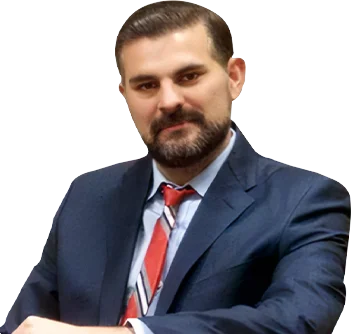When you pick up the phone to speak with GLG Personal Injury Lawyers in Phoenix, one of the most important questions you may ask is: What exactly am I entitled to recover? Many people believe a claim only covers medical bills or lost pay, but the reality is more complex. Our founding attorney, Brendan Gallagher, sums it up this way: “Your legal recovery must reflect all your losses, not just the ones you can see on a bill.”
If you have been injured due to someone else’s negligence and are consulting a personal injury lawyer in Phoenix, understanding the difference between economic and non-economic damages is essential. While both types of compensation may be available, their workings, coverage, and proof vary significantly.
What Are Economic Damages?
Economic damages are the losses that you can document in dollars and cents. These are the tangible expenses and financial impacts that flow from the accident or injury. At our firm, we request that you gather medical bills, proof of lost wages, vehicle repair estimates, and all related receipts. The clearer the documentation, the more substantial the economic portion of your claim.
Typical categories of economic damages include:
- Medical treatment costs: hospital visits, surgery, medication, and rehabilitation.
- Lost income: wages you are unable to earn because you are recovering.
- Loss of future earning capacity: when your injuries permanently limit your ability to work.
- Property damage or replacement costs: if an accident damaged your car or other assets.
Because these losses are quantifiable, they provide a foundation for your case and leave less room for dispute.
What Are Non-Economic Damages?
Non-economic damages cover the losses that cannot be easily quantified with a receipt. These are the intangible but very real impacts that hurt your life, well-being, and future. They reflect the personal toll of the injury, the emotional, psychological, and relational damage.
Examples of non-economic damages include:
- Pain and suffering: the physical discomfort and the emotional distress from what happened.
- Loss of enjoyment of life: if you can no longer engage in hobbies or activities you once loved.
- Emotional trauma: anxiety, depression, or fear resulting from the accident.
- Loss of consortium: the adverse effect on your relationship with your spouse or family because of the injury.
Because these damages are subjective, they are more challenging to prove and require additional work by a skilled attorney.
Why Knowing the Difference Matters
Imagine two claimants with identical medical bills, yet one goes back to full activity while the other suffers lasting disability, depression, and relationship strain. The economic damages may be similar, but the non-economic losses are drastically different. A knowledgeable Phoenix personal injury attorney knows how to present both sides effectively. If you only focus on documented bills, you will miss half of the story. Insurance companies often attempt to undervalue non-economic damages because they are more challenging to quantify. Having someone on your side who knows how to highlight them matters.
How Are These Damages Calculated?
Economic Damages
Since these losses are documented, your attorney will collect records: hospital bills, physician statements, wage records, and repair estimates. It is straightforward in concept, showing the cost. But future expenses (such as long-term rehabilitation or permanently reduced earnings) require projections and expert testimony.
Non-Economic Damages
Because these losses do not come with a clear dollar sign, lawyers commonly use approaches such as the “multiplier method” (multiplying your economic damages by a number based on severity) or the “per-diem method” (assigning a daily value to pain and suffering multiplied by the number of days) to assign a value. The severity, long-term impact, and your quality of life after injury all influence the calculation.
Common Misconceptions
- Misconception: “My bills are paid, so I am done.”
Reality: Your claim may still include non-economic losses even after medical bills are resolved. - Misconception: “If it is hard to prove, there must be nothing to claim.”
Reality: With the proper documentation, narratives, and expert statements, non-economic damages can be supported. - Misconception: “Only physical injuries matter.”
Reality: Emotional and relational impacts matter. If your life is changed, that matters.
How We Help as Your Advocate
At our firm, we take a full-spectrum approach. We do not just gather your bills and stop. Instead, we investigate every dimension of how the injury has impacted you, including its physical, emotional, financial, and social effects. Our team also works to identify your long-term needs and losses, in addition to your immediate ones.
We are familiar with Phoenix, Arizona, and the local insurers’ considerations, and we prepare your case from day one so that when you consult with your personal injury lawyer in Phoenix, you are guided through every question: “What else was lost? What will I never get back? How does this injury follow me into the future?”
We handle everything from securing medical records and wage information to advocating for your life as it is now and will be.
Questions To Ask When Looking For Representation
- Does your lawyer ask about emotional or lifestyle changes, in addition to bills?
- Will they investigate future losses and reduced earning capacity?
- Do they explain how they value non-economic damage in your kind of case?
- Can they show how the economic and non-economic parts of your case work together?
If you are searching for an injury attorney in Phoenix, Arizona, you want someone who treats the non-economic damages as equally important, because they often are.
Your Recovery Is More Than A Receipt
When someone else’s actions caused your injury, you are entitled to more than just reimbursement of expenses. You deserve recognition for the losses that cannot be printed on a page. As your Phoenix personal injury attorney, we will make sure you claim what was truly taken from you: your health, your future, and your peace of mind.
Don’t hesitate to get in touch with us as soon as possible so we can assess your case, discuss both economic and non-economic damages, and help you recover what you’re owed because your life after injury matters, and so does your chance to make it whole again.




